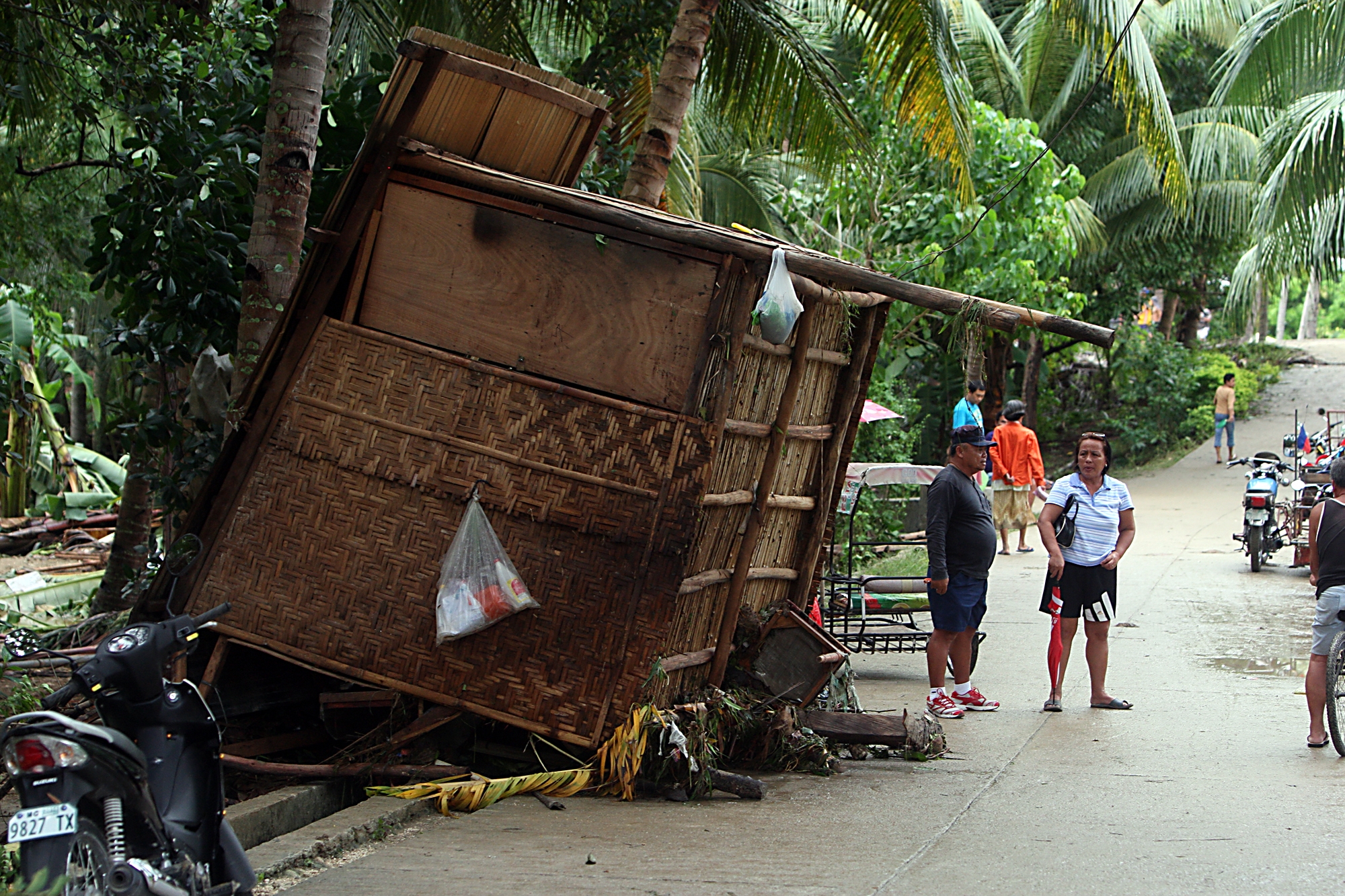
A sari-sari store lies on its side in sitio San Pedro Calungsod in Boljoon town in southern Cebu after it was swept away by last Thursday’s floods brought about by typhoon Queenie.
(CDN PHOTO/TONEE DESPOJO)
A petition signed by 70 residents of the shoreline sitio of Talisay in Boljoon town asked the government to continue its original plan for a reclamation project there.
James Dellosa, district engineer, of the Department of Public Works and Highways (DPWH) 4th engineering district, said he received the letter from Benson Benolerao, a resident.
“We the shoreline residents of Talisay, Boljoon, Cebu who were directly affected by those mighty waves coming from typhoons many years ago until these modern times, vehemently deny and denounce the reported signature campaign led by persons from other places and some politicians who pretended to be soldiers of fortune with good faith but whose ultimate objective is just to jeopardize the good purpose of our government — providing infrastructure for public safety,” said the letter.
The letter was given a few days before tropical depression ’Queenie’ struck south Cebu on Nov. 27 and closely followed a Nov. 21 public hearing, where the DPWH, under public pressure, said it would suspend the reclamation project.
Strong waves damaged 30 houses in sitio Riverside, but no major damage was reported in sitio Talisay after ‘Queenie’, said Poblacion barangay captain Alex Celis.
The letter presents the opposite stand of an earlier petition by fisherfolk of sitio Talisay and heritage-conscious residents, who complained to the Boljoon municipal council that the DPWH, without prior consultation, was excavating Ili Rock and dumping limestone debris on the shore. Several families were told to relocate. They worried about the obstruction of the landing area of fishing boats, and their livelihood.
That group called Lutadabay (Lumad Talisaynon, Daplin sa Baybayon) pressed for a “’full public inquiry, proper documentation of the project and complete adherence to the Local Government Code.”
DPWH is undertaking two projects worth P98 million using the calamity fund.
One is for “slope benching” or terracing of the Ili Rock, to prevent further landslides in Boljoon’s landmark cliff and a reclamation or “shore protection” project below it, using limestone debris.
In his letter, Benolerao said he and other residents believe the reclamation can save their houses from the impact of strong waves.
“It is not in our mind that we will sacrifice safety and prefer tourism because as previously mentioned it is our church that attracted tourists and not Ili Rock,” Benolerao said.
Ili Rock, which overlooks the sea, is the town’s oldest natural heritage site, second in importance only to the 18th century Patrocinia de Maria church complex nearby.
“It is a fact that tourists come to our beloved Boljoon town for the four centuries-old church, and not for the Ili Rock. We love that rock formation because it adds the symbol of Boljoon despite the previous near misses from yesteryears … But now that the cracks are so prevalent, it creates a high degree of public hazard that any minor tremors and heavy downpour (may cause boulders to fall),” said Benolerao, a resident of sito Talisay in Boljoon.
Last November 21, after a public forum called by DPWH in the municipal gym, where residents opposed the projects, DPWH agreed to stop the reclamation work and transfer it to another site.
Dellosa said the DPWH would instead rehabilitate the town’s former park, an old reclamation site, near the municipal hall which was damaged by typhoon Pablo in December 2012 and the 7.2 magnitude earthquake which struck in October 2013.